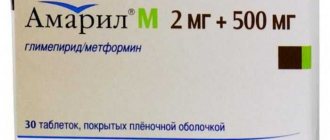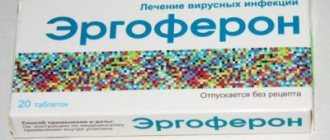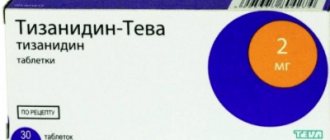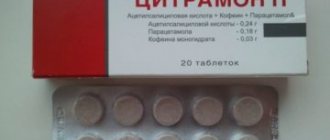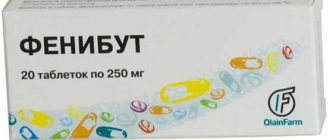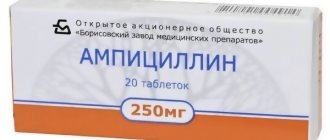If there is a lack of vitamin K in the body, increased bleeding may begin, especially during menstruation. A synthetic analog version of this vitamin is the drug Vikasol, which affects the liver and normalizes blood clotting. Features of the drug Vikasol, instructions for use for uterine bleeding.
The drug Vikasol is classified as an antihemorrhagic drug that enhances the synthesis of prothrombin in the liver, so coagulation increases. Vikasol is recommended for women for uterine bleeding.
pharmachologic effect
The active component of the drug K3 is involved in the metabolic processes of the body, promotes the absorption of calcium and vitamin D. However, the main function of Vikasol remains the ability to stimulate the liver to synthesize prothrombin, due to which a fibrin clot is formed in the blood for its subsequent coagulation. Therefore, the drug is widely used to stop bleeding of any etiology: ulcerative, uterine, hemorrhoidal , and so on.
Instructions for use of the drug Vikasol for uterine bleeding
Content
If there is a lack of vitamin K in the body, increased bleeding may begin, especially during menstruation. A synthetic analog version of this vitamin is the drug Vikasol, which affects the liver and normalizes blood clotting. Features of the drug Vikasol, instructions for use for uterine bleeding.
The drug Vikasol is classified as an antihemorrhagic drug that enhances the synthesis of prothrombin in the liver, so coagulation increases. Vikasol is recommended for women for uterine bleeding.
Indications for use
Long and heavy menstruation signals pathological processes occurring in the body, which must be diagnosed after the bleeding has stopped. To relieve symptoms, doctors recommend Vikasol, which has the following indications for use during menstruation:
- bleeding due to hormonal imbalance (with dysfunction of the endocrine system, the endometrium can also be shed unevenly and for a long time);
- intense discharge caused by fibroids, endometriosis, endometritis (with such diseases, hypertrophy of the uterine mucosa occurs, therefore, the amount of tissue rejected during menstruation increases several times);
- poor blood clotting due to vitamin K deficiency;
- bleeding of unknown etiology (dysfunctional);
- inability of the uterus to contract.
Vikasol is used in two versions: as an emergency medicine (when it is urgently necessary to stop pathological bleeding from the genital tract), and also as an addition to the main therapy to reduce the abundance of discharge.
Instructions for use of the drug Vikasol for uterine bleeding
Content
If there is a lack of vitamin K in the body, increased bleeding may begin, especially during menstruation. A synthetic analog version of this vitamin is the drug Vikasol, which affects the liver and normalizes blood clotting. Features of the drug Vikasol, instructions for use for uterine bleeding.
The drug Vikasol is classified as an antihemorrhagic drug that enhances the synthesis of prothrombin in the liver, so coagulation increases. Vikasol is recommended for women for uterine bleeding.
How to take the medicine
According to the instructions, the drug has the following terms of use and recommended dosages:
- Vikasol can be used for 3-4 days.
- Repeated administration of the medicine is possible no earlier than four days after taking the last tablet.
- In no case is it recommended to use the drug to artificially delay menstruation, interfering with the smooth functioning of the body. This can negatively affect a woman's reproductive and hormonal health in the future.
Vikasol - instructions for use in ampoules and tablets
The method of administration depends on the patient’s condition; injections are used only in a hospital under the supervision of a doctor. Vikasol - dosage in ampoules and tablets
Vikasol in ampoules is administered intramuscularly.
Adults: standard single dose – from 10 to 15 mg, daily dose – 30 mg.
Higher doses of tablets/powder for adults: single dose orally – 30 mg, daily dose – 60 mg.
The highest dose for intramuscular administration: single - 0.015 g, daily - 0.030 g.
Children: infants up to 1 year – 0.4 mg/kg per day, up to 2 years – 6 mg/day, 3/4 years 4 – 8 mg/day, 5/9 years 9 – 10 mg/day, 10/14 years 10-15 mg/day. Frequency of use: 2 to 3 times a day.
Before surgery, the drug is prescribed 2-3 days before surgery. Women in labor are given a daily dose immediately after admission to the maternity hospital, and then, if labor has not occurred, after 12 hours and after 24 hours. Dosage for newborns – not higher than 0.004 g.
Additional Information:
The course of treatment is 3-4 days. If necessary, after a 4-day break, the course of treatment can be repeated.
After administration of Vikasol, an analysis for the prothrombin index is required 3 hours later, and if the indicator does not reach the norm, the drug is administered again. In a normal situation, the daily dose should not exceed 40 mg and depends on the patient's data.
For surgical interventions with possible severe parenchymal bleeding, it is prescribed for 2 to 3 days before surgery.
Elderly patients are more sensitive to replacing anticoagulant therapy with the drug; therefore, the lower limit of the Vikasol dosage range is recommended.
For hemophilia (a hereditary disease accompanied by reduced blood clotting) and Werlhof's disease, the drug is ineffective.
Vikasol reduces and blocks the effect of neodicoumarin, phenylin and other anticoagulants (vitamin K antagonists).
Vikasol during pregnancy
The product is widely used in the early stages of pregnancy when a threat of miscarriage is detected. It effectively eliminates spotting and is used as one of the mandatory components of complex therapy, which, first of all, includes the elimination of emotional and physical stress. In this situation, it is recommended to conduct a preliminary analysis of the blood coagulation process (coagulogram), since the drug is a strong hemostatic drug. Doctors often prescribe the drug at a later date to prevent severe blood loss during childbirth.
During pregnancy, the drug is prescribed in the form of injections to quickly achieve its therapeutic effect.
Restrictions
Vikasol is contraindicated in cases of high blood clotting , the patient's tendency to thromboembolism, thrombosis and hypercoagulation . Its use is not recommended for women with renal failure (due to the possible occurrence of unwanted side effects).
Vikasol should also not be taken by girls who are allergic to any component in the medication . If a hypersensitivity reaction occurs, you should consult a specialist as soon as possible to change the medication.
Indications and contraindications
Uterine bleeding (menorrhagia) is a pathological process that requires mandatory diagnosis and further treatment. The examination is carried out after the cessation of bleeding, which can be helped by taking Vikasol.
The drug is indicated in the following cases:
- menstrual irregularities caused by hormonal imbalance caused by endocrine diseases;
- heavy bleeding that accompanies some gynecological diseases, in which the uterine mucosa undergoes hypertrophy, resulting in a large amount of tissue being rejected during menstruation;
- lack of vitamin K in the body, which causes problems with blood clotting;
- menorrhagia, i.e. bleeding of unknown origin;
- insufficient contraction of the uterus.
Important information: What to do when a vessel in the eye bursts and what drops to use to treat burst capillaries
Not everyone can take this drug. Vikasol is contraindicated for people who have high blood clotting. The medication is not prescribed if you are prone to a number of diseases: hypercoagulation, thrombosis, thromboembolism. In women suffering from kidney pathologies, Vikasol causes side effects, so the drug is not prescribed to them.
The medicine is not recommended if you are hypersensitive to the substances present in the tablets and solution. If unpleasant symptoms of an allergic reaction appear after taking the medicine, you should consult a doctor as soon as possible
Reviews from women
On the Internet you can find many positive and negative opinions about the drug. A few of them are given below.
Since my youth I have been using Vikasol to regulate the amount of discharge during menstruation. They didn’t find any abnormalities in me, my periods were always painless, the only thing that bothered me was heavy bleeding. The doctor suggested taking birth control, but I refused. I think that this drug is safer, because, in fact, it is ordinary vitamins. Naturally, there is no pronounced effect. Vikasol acts very gently, but this is exactly what I need.
Natalya, 31 years old
The doctor prescribed this remedy in the last month of pregnancy as a preventive measure against severe blood loss during childbirth. I don’t know whether it was his merit or not, but they really went very well and quickly, without heavy bleeding.
Yana, 25 years old
There was a threat of termination of pregnancy. Doctors, among other medications, prescribed Vikasol in ampoules for intramuscular administration. The discharge stopped very quickly and the child was not harmed. I still thank the specialists for this.
Marina, 19 years old
The gynecologist suggested Vikasol to combat intense bleeding during menstruation. It didn’t really help in my case, perhaps it was rather weak due to its “naturalness”. I had to resort to stronger means.
Zhanna, 27 years old
Analogs
If the patient has contraindications to the use of Vikasol or is allergic to any component in its composition, the doctor may recommend that she choose one of the following analogues:
- Dicinone is a fast-acting drug that is widely used in obstetrics and gynecology. In addition to hemostatic, it has a mild analgesic effect.
- Tranexam is a medication that is used both to reduce the intensity of menstrual flow and as an anti-inflammatory agent.
- Etamzilate is a drug that, like Vikasol, is available in two dosage forms (in the form of tablets and a solution in ampoules), and is characterized by a high speed of action.
The selection of a medicine is carried out strictly under the supervision of a doctor. You should not self-medicate or try to stop bleeding during menstruation on your own. This can lead to unpredictable consequences.
Side effects
Most patients tolerate Vikasol well.
Side effects from treatment with this drug include allergic reactions, which can manifest themselves in the following forms: itching; bronchospasms; hyperemia; hemolytic anomaly in newborns. Excessive intake of the drug leads to hypervitaminosis K, a direct indicator of which will be an excess of prothrombin and bilirubin in the blood. In rare cases, an overdose of the drug leads to the development of hyperthrombinemia, which is a manifestation of hypervitaminosis K. Cases of toxicosis are known in children under one year of age.




